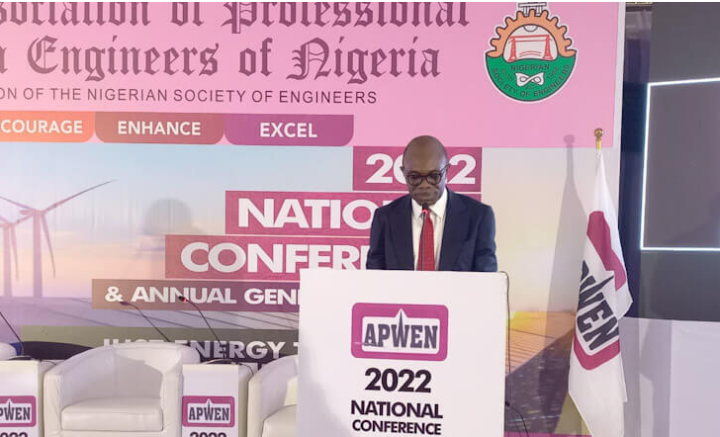Adokiye Tombomieye, group executive director, Upstream, Nigerian National Petroleum Company Limited, says Nigeria’s energy transition plan will boost investment in multi-billion-dollar gas projects.
Tombomieye said this on Tuesday at the 2022 Annual Conference of the Association of Professional Women Engineers (APWEN), held in Abuja.
He said the aggressive push for a carbon zero emission would attract adequate funding for the nation.
“The Energy transition will continue to impact the ability of Nigeria and oil and gas companies to attract capital as banks and investors prioritise Environmental, Social, and Governance factors and are moving away from funding hydrocarbon projects,” Tombomieye said.
Advertisement
“Globally, the transportation sector generates the largest share of greenhouse gas emissions which primarily comes from burning fossil fuels for our cars, trucks, ships, trains, and planes; 90 percent of the fuel used for transportation is petroleum based, which includes primarily gasoline and diesel.”
According to him, about 60 percent of the fossil fuel market in Nigeria is driven by the transportation industry, adding that it is a significant consumption percentage for fossil fuels.
He added that the replacement of Internal Combustion Engine with Electric Vehicles (EVs) would automatically affect the market demand for fossil fuel vehicles.
Advertisement
“With about 60 percent of your fossil fuel (crude oil) demand impacted, it will significantly and negatively impact crude oil production,” he said.
“Unfortunately, for us in Nigeria, we produce and sell crude oil, which is an anti-energy transition. Nigeria is endowed with abundant natural resources.”
He said the usage of renewables — solar, wind, tidal wave, and natural gas –remains an important transition fuel for sustainable development, and Nigeria has a healthy balance of gas and oil.
The Nigerian Upstream Petroleum Regulatory Commission (NUPRC) estimated the country’s crude oil reserves at 37.046 billion barrels and gas reserves at 208.62TCF as of January 31.
Advertisement
“The good news is that financial Institutions will fund gas projects. Therefore, leveraging upon gas development will be a way for Nigeria to navigate the energy transition mantra,” he added.
“Energy transition also comes with the opportunities of carbon credits, and because Nigeria produced gas and oil, we can market our carbon which will also be an incentive for us to process funding from financial institutions.”
Speaking further, the NNPC group executive director said the country’s energy transition would create significant investment opportunities such as the establishment and expansion of industries related to solar energy, hydrogen, and electric vehicles.
“Before the window closes on fossil fuel, Nigeria must utilise its oil and gas resources to boost our economy and promote sustainable growth and social development for the present and future generations, he said.
Advertisement
“Nigeria must therefore move away from being an energy exporting country to an energy utilisation country; by processing and utilising our crude oil and gas for our domestic energy needs in order to drive industrialisation, create jobs, and provide electricity for over 200 million Nigerians. No one will do this for us — things must change.”
Last week, NNPC Ltd sealed a memorandum of understanding with the National Office of Hydrocarbons and Mines of Morocco and the ECOWAS commission to execute the 7,000km Nigeria-Morocco gas pipeline project.
Advertisement
The deal is to tap from the European gas market through the project.
Advertisement
Add a comment






